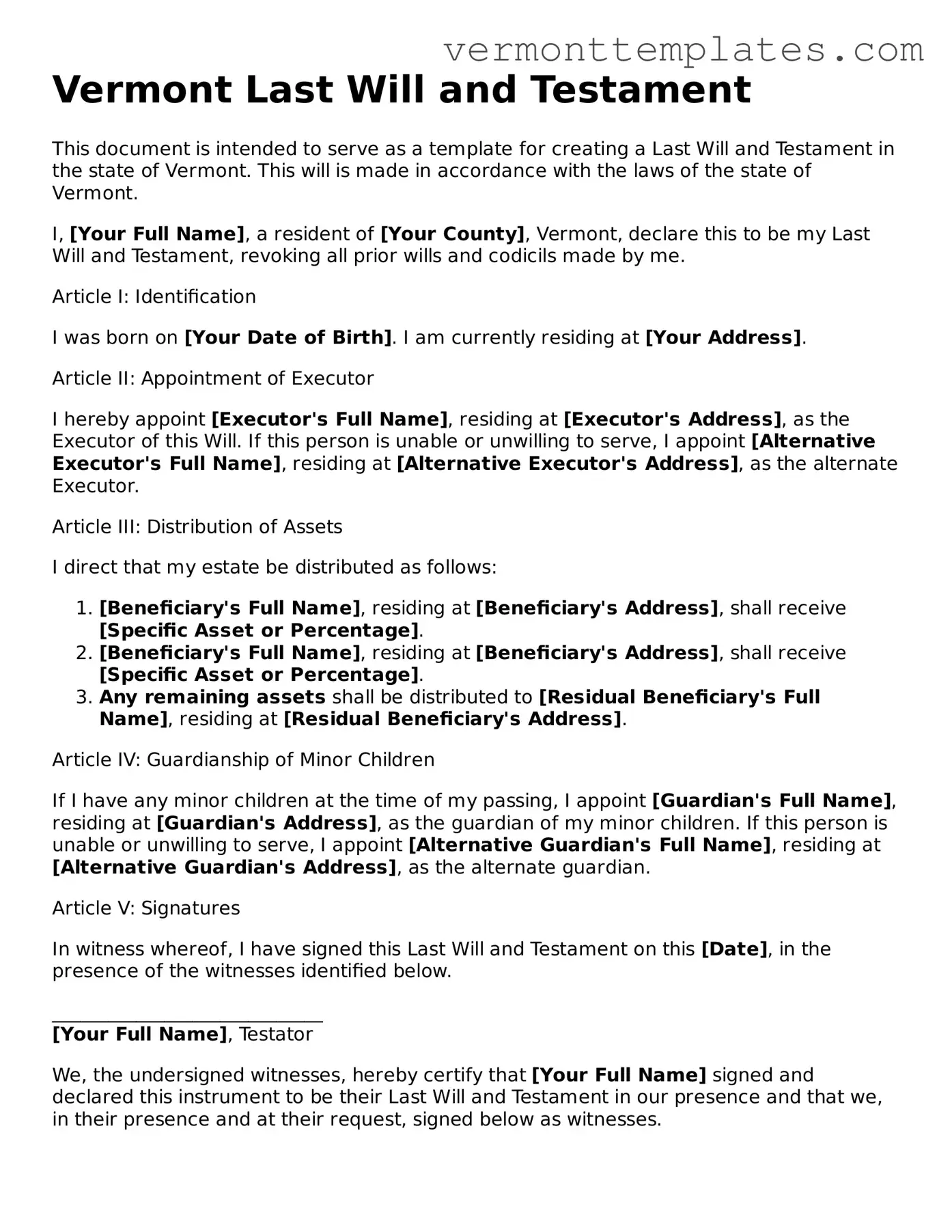Legal Last Will and Testament Template for Vermont
A Last Will and Testament is a legal document that outlines how a person's assets and affairs should be handled after their death. In Vermont, this form provides a clear framework for individuals to express their wishes regarding the distribution of their property and the care of any dependents. Understanding this document is essential for ensuring that your intentions are honored and that your loved ones are taken care of.
Open Last Will and Testament Editor

Legal Last Will and Testament Template for Vermont
Open Last Will and Testament Editor
Complete the form at top speed
Edit, save, and download Last Will and Testament online with ease.
Open Last Will and Testament Editor
or
⇩ Last Will and Testament PDF Form
